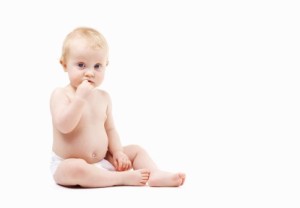 There has always been much speculation, at least on my part, that the overuse of antibiotics in young children will increase their tendency to develop eczema. While this has been my own clinical observation, without many thousands of cases to pool from, the data of one doctor’s experience will indeed be limited. Well, in the latest issue of the British Journal of Dermatology, a systemic review of 20 different studies linking the association of eczema with antibiotic use in children, found that early life exposure to antibiotics does increase the risk of eczema, with an increased risk of 7% for each additional antibiotic course received during a child’s first year of life. Thus the relationship is beyond suspicious, and now seems to be quite implicated and real!
There has always been much speculation, at least on my part, that the overuse of antibiotics in young children will increase their tendency to develop eczema. While this has been my own clinical observation, without many thousands of cases to pool from, the data of one doctor’s experience will indeed be limited. Well, in the latest issue of the British Journal of Dermatology, a systemic review of 20 different studies linking the association of eczema with antibiotic use in children, found that early life exposure to antibiotics does increase the risk of eczema, with an increased risk of 7% for each additional antibiotic course received during a child’s first year of life. Thus the relationship is beyond suspicious, and now seems to be quite implicated and real!
Interestingly enough, I just saw a young 14 month old last week who was covered head to two in widespread weeping eczema. Quite a bad case for such a youngster. Upon investigation it became clear that he had a family history of the atopic disorder, with his mother, father, and sister all suffering with some type of eczema, asthma or hay-fever (all related problems). But this poor boy was clearly worse off than any of his relatives, leaving me with the question of why? Well it turns out that the boy had been suffering with chronic earaches since he was few months old, for which he had been put on antibiotics, one after another, with a total of at least 4 or 5 subsequent rounds – all of which coincided with a complete worsening of his eczema.
Basically we can say that the boy (which is true for most people) was born with a genetic tendency to have eczema. It doesn’t mean that he would have it for sure, it just means he had the genetic tendency to develop it at some time in his life. Certain triggers then allow that gene to be expressed. If the triggers are not removed, or continue in their intensity (as in the case of repeated antibiotic use), the eczema will flare in larger proportions and will also become more difficult to control. The trigger has to be stopped and the eczema must be calmed down, otherwise we end up with the eczema becoming a dangerous whole-body event.
So how would antibiotics lead to increased eczema? By looking through a Chinese medicine lens we may gain a few clues. It is well known that over use of antibiotics can lead to diarrhoea and loose watery stools, which is in part due to the drugs ability to wipe out all bacteria – both good and bad. In Chinese medicine we say that this type of bowel movement can be due to a break down of the digestion’s ability to separate out the clear (nutrition) from the turbid (the waste), with an accumulation of un-assimilated pathological fluids being the end result, which the Chinese have coined dampness. Dampness, when it accumulates, has a tendency to clog up the body, leading to such disorders as watery stools, arthritis, heaviness in the limbs, chronic colds and coughs, chronic earaches (research has shown that antibiotics are a poor long term solution for chronic earaches, probably because they actually worsen the fluid build up in the ear canal), thrush, and weepy types of eczema – for which this boy had.
Foods and medicines that are hard on the digestion may thus lead to dampness. Antibiotics seem to do this, as does excess sugar intake. I tell all my patients, especially parents of children suffering with dampness related illnesses like earaches and eczema, that they should greatly reduce their sugar intake, particularly in the form of refined white sugar (especially pop and candies!) but also fruit juice and floor products like cookies, bread and muffins.
Antibiotics and/or excessive sugar intake = weakened digestion = accumulation of dampness = watery stool, thrush, eczema, recurrence of earaches, etc….
When I treat youngsters, less than say 2, for such disorders like chronic earaches or eczema, I always try to do so by focusing on the reduction of sugary foods first. For the eczema I then try to rely on external herbal washes, lotions and creams. If these do not seem to be working, then I administer herbal medicines as a tea, which are made specific to the child’s needs. Much of the time these herbal teas are focused on improving the child’s digestion, as well as helping to facilitate their ability to rid themselves of excessive fluids, or dampness. This has been the way for thousands of years and thus proven as an effective means to conquer somewhat nasty problems. Let us remember that, while antibiotics are extremely powerful and much needed medicines, they are also relatively new in the grand scheme of things and, as such, we are still in the juvenile learning stages when prescribing them. Antibiotics, in my mind anyways, should thus be used as last resort when treating the young, undeveloped, and vulnerable. Best to first adjust the diet and stick to time proven herbal medicines, as prescribed by a trained professional, like a Doctor Chinese medicine skilled in the area of health that is of concern.
Wishing you good health,
Dr. Trevor Erikson
